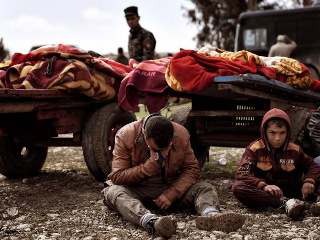As another month winds down, another official Pentagon report on civilian death tolls in Iraq and Syria has been released, and as usual dramatically underreports the true death toll of an increasingly aggressive air campaign in densely populated cities.
 Most of the deaths came in Raqqa, and reports on the ground documented roughly 100 civilians killed in a single 48 hour span in mid-August. This was the result of bombardment of residential areas in Raqqa, something which was realistically happening almost daily throughout the entire month.
Most of the deaths came in Raqqa, and reports on the ground documented roughly 100 civilians killed in a single 48 hour span in mid-August. This was the result of bombardment of residential areas in Raqqa, something which was realistically happening almost daily throughout the entire month.
100 civilians dead in 48 hours, and Airwars documented hundreds of incidents besides. Yet the Pentagon boiled this all down to a preposterously low claim of only 50 civilians killed in the entire month, despite documentation that there were multiple individual days that had bigger tolls from US action than that.
It’s still not clear where the Pentagon gets the nerve to keep overtly lying about their death tolls, but we do know the method. The Pentagon said they were aware of 185 reports of them causing civilian casualties. The 50 killed came from the 14 that they believed, and the other 171 incidents, and the hundreds of deaths associated with them, were labeled “non-credible” and discarded.
As always, the “non-credible” distinction appears to be wholly arbitrary, since the Pentagon has admitted it makes no formal effort to confirm bodycounts to begin with, believing such figures are not militarily useful. Lying to the American public about the people you killed, however, has proven an extremely practical side effect of this, and the lack of even nominal record-keeping gives them at least some deniability.


